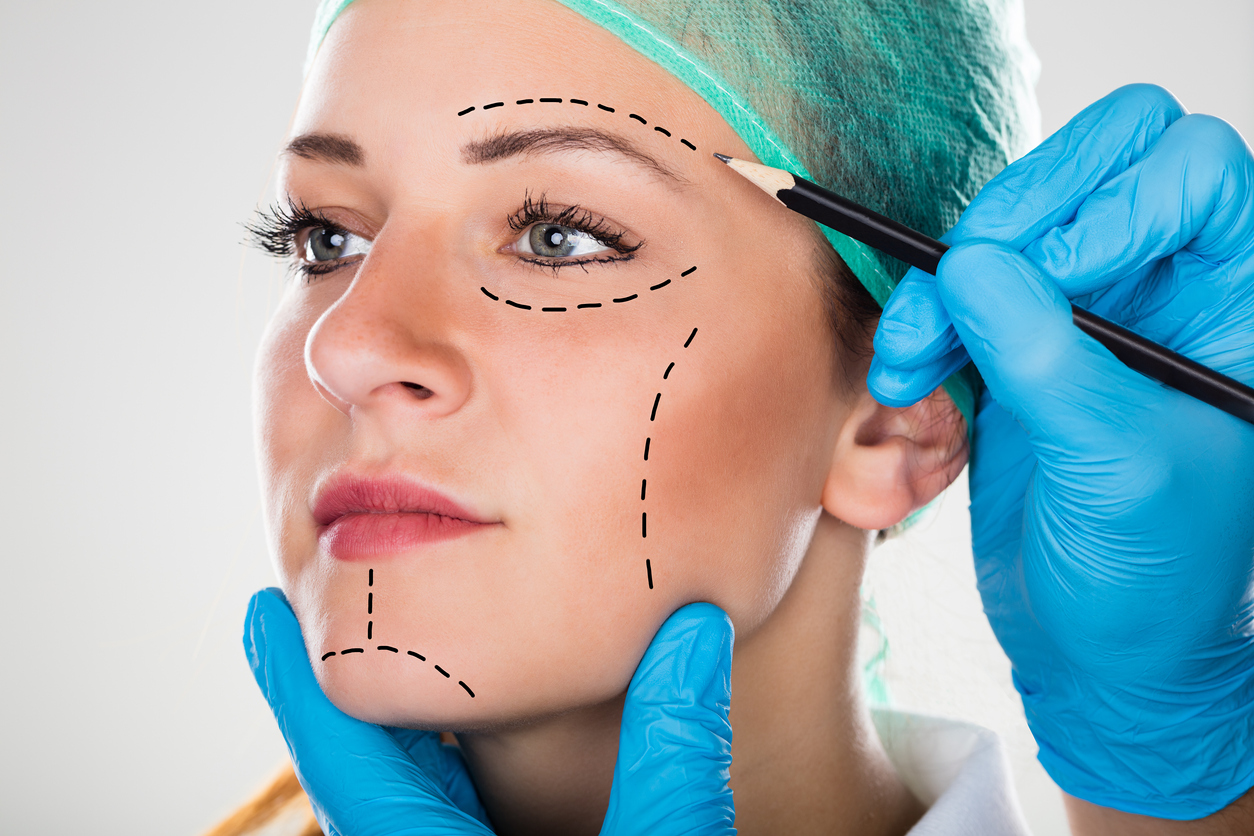
All physicians, surgeons, anesthesiologists, and other licensed medical professionals bear a responsibility to deliver an industry-recognized standard of care. While you can’t sue a cosmetic surgeon if you don’t like the results, you can hold him or her accountable for failing to meet certain expectations.
How Does Cosmetic Surgery Differ From Other Treatments?
Cosmetic surgery is a subset of plastic surgery. Plastic surgery includes both elective and reconstructive surgeries, whereas cosmetic surgeries focus on superficial bodily enhancement. Most liposuction, eyelid changes, lifting, and tucking surgeries fall into the category of cosmetic surgeries. Since individuals elect to receive these treatments, health insurers rarely cover the costs.
Elective surgeries are medically unnecessary, but they do not alter the medical standard of care cosmetic surgeons must follow. Whether performing open heart surgery or a breast reduction surgery, a physician should use the same medically reasonable level of care.
Types of Cosmetic Surgery Malpractice
Most people have heard of or read about at least one cosmetic surgery horror story. Constantly surprised eyebrow lifts and cumbersome breast implants may leave a patient dissatisfied but still fall within the parameters of sound medical practice. A cosmetic surgeon may only face legal responsibility for the outcome if a surgeon breaches a contract or the medical standard of care and the patient suffers as a result of the breach.
Medical malpractice may include willful changes in the patient’s request at the time of the procedure, surgical errors, and lack of experience. In Florida, two plastic surgeons are currently facing legal action from over 200 women after botched breast augmentation surgeries. Many of the women received false information from the surgeons, required additional surgeries, and received improper implant sizing from the surgeons. The practice faces allegations of malpractice and fraud.
Anesthesia errors, procedure-related infections, and improper aftercare may also result in cosmetic surgery-related malpractice claims. Medical procedures should never result in disfigurement, infection, or ongoing complications that cause lasting and serious harm.
Challenges in Cosmetic Surgery Malpractice Claims
Valid cosmetic surgery malpractice claims exist, but pursuing action requires diligence. If the case goes to trial, juries may let their preconceived notions impact the decision-making process. Many people believe cosmetic surgery patients accept a higher level of risk than patients who undergo medically necessary surgeries. Plaintiffs must build a strong case to show negligence or willful misconduct on the part of the surgeon.
Additionally, the plaintiff must prove malpractice beyond procedure dissatisfaction. The presence of infection, scarring, or debilitating complications such as nerve damage, implant leaks, or chronic pain may point to an act of malpractice.
Cosmetic surgery patients can work with personal injury attorneys who understand the challenges in these claims to strengthen a malpractice claim and obtain a fair judgment. In Missouri, patients must file a malpractice claim within two years of the injurious incident, and obtain an affidavit of merit from a qualified medical professional to justify the complaint.
In a cosmetic surgery malpractice claim, patients can obtain damages similar to any other personal injury claim. A successful claim may provide compensation for medical expenses, corrective surgery, and other losses. While the same potential for compensation is available, cosmetic surgery claims tend to deliver lower compensatory awards than medically necessary surgery claims. The degree of negligence, patient risk acceptance, and severity of the injury will all affect the damages available.
Pursuing a Claim Against a Cosmetic Surgeon
Keep clear records of interactions with cosmetic surgeons, and make your expectations for results clear from the first consultation. The more recorded communication, medical records, and details you keep, the better you can prove negligence or malpractice while under a cosmetic surgeon’s care. If you suspect malpractice, don’t wait to speak out. A Kansas City medical malpractice lawyer can help you determine if filing a claim makes sense in your situation.
Contact The Personal Injury Law Firm of Dickerson Oxton in Kansas City, MO Today
For more information, contact the Kansas City, MO personal injury law firm of Dickerson Oxton to schedule a free initial consultation.
We serve in Jackson County and its surrounding areas across Missouri:
Dickerson Oxton – Kansas City Office
1100 Main St #2550, Kansas City, MO 64105
(816) 268 1960
Hours: Monday to Thursday,
from 8 am – 5 pm
